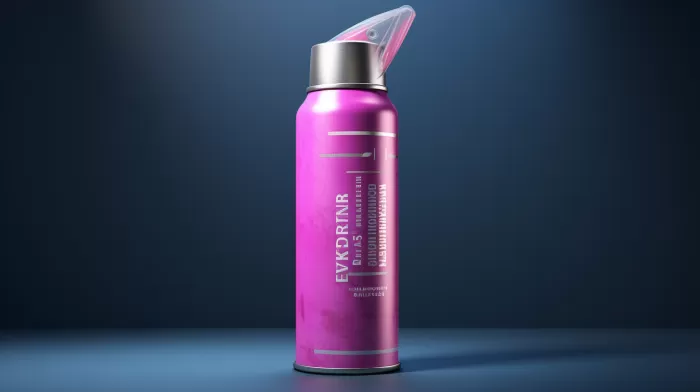Chemicals are all around us, not just in the air we breathe, but also in the food we eat and the products we use to clean ourselves and our homes. While our bodies can usually offset exposure to these chemicals, overexposure may lead to diseases, including breast cancer.
The dangers of aluminum in antiperspirant deodorants
Antiperspirant deodorants contain aluminum, which has been shown to affect human breast tissue. The FDA sets limits on how much aluminum can be included in these products, but the long-term consequences of daily exposure to low levels of aluminum are still uncertain. Researchers warn that applying deodorant to recently shaved or irritated skin may lead to higher concentrations of aluminum in breast tissue, potentially increasing the risk of cancer.
The risks of hair dye and pesticides in food
Hair dye is another common product linked to cancer. It contains carcinogens that have been associated with a 23% increased risk of breast cancer. Pesticides in food can also disrupt hormones, potentially contributing to breast cancer development.
Endocrine disrupters
Endocrine disrupters are chemicals that affect hormone levels in the body and should be avoided as much as possible. These include phthalates, found in perfume, nail polish, cosmetics, carpets, plastic toys, and cleaning products, and phenols, present in food cans, plastic bottles and containers, mouthwash, dental care items, and cosmetics. Flame retardants used in furniture, carpet, and synthetic fabrics are also endocrine disrupters, as are perfluorinated compounds (PFCs) found in non-stick cookware and stain-resistant fabrics. Organochlorine and organophosphate pesticides also disrupt hormones, causing nerve impulse problems and other negative effects on the body.
How to minimize exposure to chemicals
While impeccable chemical safety might be impossible to achieve, there are measures that can be taken to reduce exposure.
- Eat organic food. Choosing organic produce, particularly for items known to have higher pesticide residues, like strawberries, spinach, nectarines, apples, peaches, pears, cherries, grapes, celery, tomatoes, bell peppers, and potatoes.
- Safely package food in BPA-free or stainless steel containers instead of plastic wrap. Use parchment paper or reusable paper bags to prevent lunchbox contamination.
- Filter tap water with a water filter jug or permanent tap filter.
- Ditch the chemicals in hair dye. If the idea of going gray isn’t for you, try henna-based natural hair dyes.
- Use natural personal care products. Many potentially dangerous chemicals are present in everyday personal care items, especially those with fragrance. Opt for natural, organic products instead.
- Keep your home toxin-free by choosing naturally-made, flame retardant-free furnishings.
- Purchase natural, non-toxic cleaning products or make your own using natural ingredients like vinegar, lemon, tea tree oil, vegetable soap, and baking soda.
- Wash your hands regularly to minimize cross-contamination.
By taking these precautions, you can reduce the risk of diseases like cancer caused by chronic exposure to harmful chemicals.



